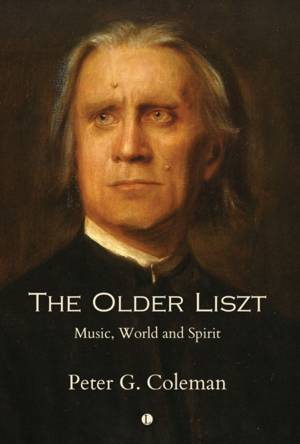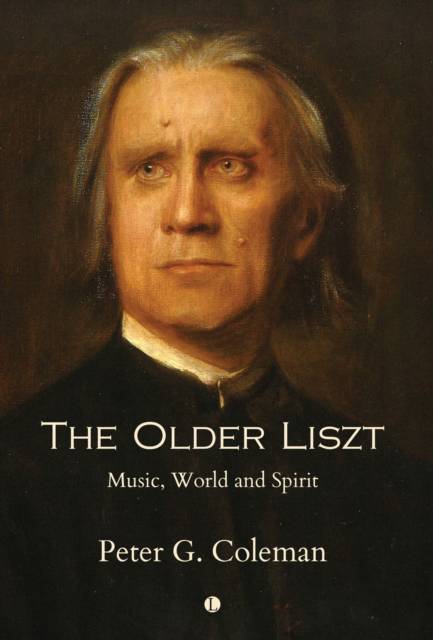
Door een staking bij bpost kan je online bestelling op dit moment iets langer onderweg zijn dan voorzien. Dringend iets nodig? Onze winkels ontvangen jou met open armen!
- Afhalen na 1 uur in een winkel met voorraad
- Gratis thuislevering in België vanaf € 30
- Ruim aanbod met 7 miljoen producten
Door een staking bij bpost kan je online bestelling op dit moment iets langer onderweg zijn dan voorzien. Dringend iets nodig? Onze winkels ontvangen jou met open armen!
- Afhalen na 1 uur in een winkel met voorraad
- Gratis thuislevering in België vanaf € 30
- Ruim aanbod met 7 miljoen producten
Zoeken
Omschrijving
Franz Liszt is well known for his early years as 'super-star' pianist who excited audiences throughout Europe, but his later life is also of great interest. In his final 25 years he sought to achieve his life's aims of promoting new forms of music and giving stronger witness to his Christian faith, while continuing to support his stalwart life partner Princess Carolyne. However, he was to face unexpected problems in the continued negative reception of his music and recrimination in his closest relationship. Drawing on detailed analysis of Liszt's correspondence from his fiftieth year onwards, Peter Coleman approaches his later life as a case study of an older person grappling with a succession of often disturbing life experiences. These included the deaths of two of his children, political upheaval and war within Europe, and a growing realisation of his own past failings. Liszt suffered frequent bouts of depression but never ceased composing music nor steadfastly heeding Christ's command to bear one's cross. This sensitive treatment of an extraordinary individual will appeal to the scholar and general reader alike.
Specificaties
Betrokkenen
- Auteur(s):
- Uitgeverij:
Inhoud
- Aantal bladzijden:
- 324
- Taal:
- Engels
Eigenschappen
- Productcode (EAN):
- 9780718897154
- Verschijningsdatum:
- 29/06/2023
- Uitvoering:
- Hardcover
- Formaat:
- Genaaid
- Afmetingen:
- 242 mm x 164 mm
- Gewicht:
- 498 g

Alleen bij Standaard Boekhandel
+ 184 punten op je klantenkaart van Standaard Boekhandel
Beoordelingen
We publiceren alleen reviews die voldoen aan de voorwaarden voor reviews. Bekijk onze voorwaarden voor reviews.











